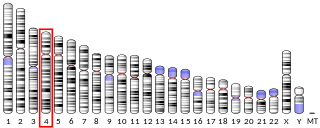A membrane transport protein is a membrane protein involved in the movement of ions, small molecules, or macromolecules, such as another protein, across a biological membrane. Transport proteins are integral transmembrane proteins; that is they exist permanently within and span the membrane across which they transport substances. The proteins may assist in the movement of substances by facilitated diffusion or active transport. The two main types of proteins involved in such transport are broadly categorized as either channels or carriers. The solute carriers and atypical SLCs are secondary active or facilitative transporters in humans.

Battenin is a protein that in humans is encoded by the CLN3 gene located on chromosome 16. Battenin is not clustered into any Pfam clan, but it is included in the TCDB suggesting that it is a transporter. In humans, it belongs to the atypical SLCs due to its structurally and phylogenetically similarity to other SLC transporters.

Major facilitator superfamily domain-containing protein 2 -- also known as sodium-dependent lysophosphatidylcholine symporter 1 -- is a protein that in humans is encoded by the MFSD2A gene. MFSD2A is a membrane transport protein that is expressed in the endothelium of the blood–brain barrier (BBB) and has an essential role in BBB formation and function. Genetic ablation of MFSD2A results in leaky BBB and increases central nervous system endothelial cell vesicular transcytosis without otherwise affecting tight junctions. MFSD2A is an atypical SLC, thus a predicted SLC transporter. It clusters phylogenetically to AMTF8.

Major facilitator superfamily domain containing 8 also called MFSD8 is a protein that in humans is encoded by the MFSD8 gene. MFSD8 is an atypical SLC, thus a predicted SLC transporter. It clusters phylogenetically to the Atypical MFS Transporter family 2 (AMTF2).

Solute carrier family 2, facilitated glucose transporter member 11 (SLC2A11) also known as glucose transporter type 10/11 (GLUT-10/11) is a protein that in humans is encoded by the SLC2A11 gene.

Unc-93 homolog A is a protein that in humans is encoded by the UNC93A gene.

Major facilitator superfamily domain containing 7 is a protein that in humans is encoded by the MFSD7 gene.
The amino acid-polyamine-organocation (APC) superfamily is the second largest superfamily of secondary carrier proteins currently known, and it contain several Solute carriers. Originally, the APC superfamily consisted of subfamilies under the transporter classification number 2.A.3. This superfamily has since been expanded to include eighteen different families.
The Amino Acid-Polyamine-Organocation (APC) Family of transport proteins includes members that function as solute:cation symporters and solute:solute antiporters. They occur in bacteria, archaea, fungi, unicellular eukaryotic protists, slime molds, plants and animals. They vary in length, being as small as 350 residues and as large as 850 residues. The smaller proteins are generally of prokaryotic origin while the larger ones are of eukaryotic origin. Most of them possess twelve transmembrane α-helical spanners but have a re-entrant loop involving TMSs 2 and 3. The APC Superfamily was established to encompass a wider range of homologues.

Major facilitator superfamily domain containing 14A is a protein that in humans is encoded by the MFSD14A gene. MFSD14A is an atypical solute carrier of MFS type. HGNC:23363

Major facilitator superfamily domain containing 1 is a protein belonging to the MFS Pfam clan. It is an Atypical solute carrier.
Zinc transporter proteins (Zrt), or simply zinc transporters, are membrane transport proteins of the solute carrier family which control the membrane transport of zinc and regulate its intracellular and cytoplasmic concentrations. They include two major groups: (1) the zinc transporter (ZnT) or solute carrier 30 (SLC30) family, which controls the efflux of zinc from the cytoplasm out of the cell and from the cytoplasm into vesicles; and (2) the zinc importer, Zrt- and Irt-like protein (ZIP), or solute carrier 39A (SLC39A) family, which controls the influx of zinc into the cytoplasm from outside the cell and from vesicles.
Major facilitator superfamily domain containing 5 is an atypical SLC expressed in neuronal plasma membranse. It is a plausible Solute carrier transporter. It transports molybdate anions, and it interacts with GLP-1R.
Major facilitator superfamily domain containing 11 (MFSD11) is an atypical Solute carrier found in plasma membranes.
Major facilitator superfamily domain containing 14B is an atypical solute carrier of MFS type. It locates to intracellular membranes.
Atypical SLCs are novel plausible secondary active or facilitative transansporter proteins that share ancestral background with the known solute carriers. However, they have not been assigned a name according to the SLC root system, or been classified into any of the existing SLC families.
Major facilitator superfamily domain containing 9 (MFSD9). It is a plausible solute carrier, and called atypical solute carrier since it is not named according to the SLC nomenclature.
Major facilitator superfamily domain containing 4A is a protein belonging to the MFS Pfam clan. It is an Atypical solute carrier, thus a plausible SLC transporter in humans. MFSD4A has been identified in both central and peripheral areas.







